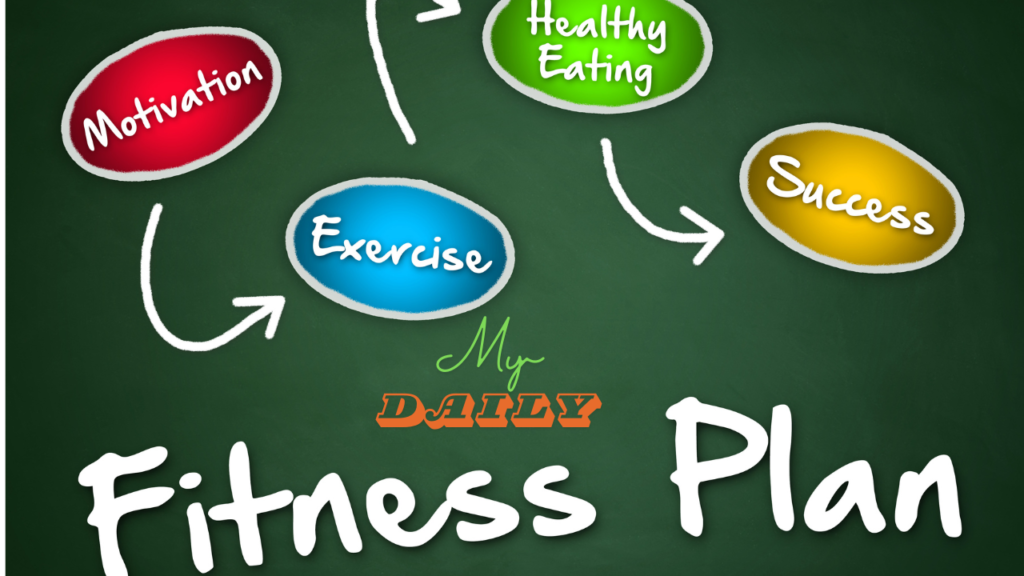Embarking on a journey to health and well-being is one of the most rewarding endeavors you can undertake. In today’s fast-paced world, maintaining a balanced lifestyle that promotes physical, mental, and emotional health is more crucial than ever. The path to well-being is not a one-size-fits-all journey but a personalized adventure that involves making sustainable changes in various aspects of life. Whether you’re just starting out or looking to enhance your existing routine, this guide will provide you with comprehensive insights into achieving and maintaining health and well-being.
We’ll explore key components such as nutrition, physical activity, mental health, and lifestyle habits. Additionally, we’ll discuss practical steps you can take to integrate these elements into your daily life, ensuring that your journey is not only effective but also enjoyable and sustainable. This guide is designed to be your companion, offering actionable tips, inspiration, and encouragement as you work towards a healthier, happier you.
The Foundations of Health and Well-being

Understanding Health and Well-being
Health and well-being encompass more than just the absence of illness. They involve a holistic approach that includes physical health, mental clarity, emotional stability, and a sense of purpose and connection. Achieving well-being means striving for balance in all these areas, leading to a life that feels fulfilling and resilient.
Why Health and Well-being Matter
Investing in your health and well-being can lead to numerous benefits, including increased energy, improved mood, better sleep, enhanced productivity, and a reduced risk of chronic diseases. Moreover, it enables you to handle stress more effectively and build stronger relationships, contributing to an overall sense of happiness and life satisfaction.
Nutrition: Fueling Your Body
Importance of a Balanced Diet
A balanced diet is fundamental to health and well-being. It provides the essential nutrients your body needs to function optimally. This includes macronutrients like carbohydrates, proteins, and fats, as well as micronutrients such as vitamins and minerals.
Tips for Healthy Eating
- Eat a Variety of Foods: Include a wide range of fruits, vegetables, whole grains, lean proteins, and healthy fats in your diet to ensure you get all necessary nutrients.
- Portion Control: Be mindful of portion sizes to avoid overeating, which can lead to weight gain and other health issues.
- Stay Hydrated: Drink plenty of water throughout the day to keep your body hydrated and support overall health.
- Limit Processed Foods: Reduce your intake of processed and sugary foods, which can contribute to health problems like obesity and diabetes.
Practical Steps
- Meal Planning: Plan your meals ahead of time to ensure you have healthy options available and avoid last-minute unhealthy choices.
- Mindful Eating: Pay attention to your hunger and fullness cues, and enjoy your food without distractions.
- Cooking at Home: Prepare meals at home more often to have better control over ingredients and cooking methods.
Physical Activity: Moving for Health
 Benefits of Regular Exercise
Benefits of Regular Exercise
Physical activity is essential for maintaining a healthy body and mind. It helps control weight, reduces the risk of chronic diseases, improves mental health, and boosts overall energy levels.
Types of Exercise
- Cardiovascular Exercise: Activities like walking, running, cycling, and swimming increase your heart rate and improve cardiovascular health.
- Strength Training: Lifting weights or using resistance bands helps build muscle mass and strength.
- Flexibility and Balance: Yoga, Pilates, and stretching exercises enhance flexibility, balance, and overall body coordination.
Practical Steps
- Set Realistic Goals: Start with achievable goals and gradually increase the intensity and duration of your workouts.
- Find Activities You Enjoy: Choose exercises that you find enjoyable to make it easier to stick with your routine.
- Incorporate Movement into Daily Life: Take the stairs, walk or bike to work, or engage in active hobbies like gardening or dancing.
Mental Health: Cultivating a Healthy Mind
Importance of Mental Health
Mental health is a critical component of overall well-being. It affects how we think, feel, and act, influencing our ability to handle stress, relate to others, and make decisions.
Strategies for Mental Well-being
- Mindfulness and Meditation: Practicing mindfulness and meditation can help reduce stress, improve focus, and enhance emotional regulation.
- Stress Management: Identify stressors in your life and develop healthy coping mechanisms, such as exercise, deep breathing, or talking to a friend.
- Healthy Relationships: Foster supportive relationships with family, friends, and colleagues to create a strong social support network.
Practical Steps
- Establish a Routine: Create a daily routine that includes time for relaxation, hobbies, and social interactions.
- Seek Professional Help: Don’t hesitate to seek help from a mental health professional if you’re struggling with mental health issues.
- Limit Screen Time: Reduce your exposure to screens, especially before bedtime, to improve sleep and reduce stress.
Lifestyle Habits: Building a Healthy Routine
Importance of Healthy Habits
Healthy lifestyle habits are the foundation of long-term well-being. They include not only diet and exercise but also sleep, hydration, and avoiding harmful behaviors.
Essential Habits
- Sleep: Aim for 7-9 hours of quality sleep each night to support physical and mental health.
- Hydration: Drink enough water throughout the day to stay hydrated and support bodily functions.
- Avoid Harmful Behaviors: Limit alcohol consumption, avoid smoking, and reduce caffeine intake.
Practical Steps
- Create a Sleep-Friendly Environment: Make your bedroom a restful place by keeping it dark, quiet, and cool.
- Develop a Bedtime Routine: Establish a relaxing pre-sleep routine, such as reading or taking a warm bath.
- Monitor Your Habits: Keep track of your habits to identify areas for improvement and celebrate your progress.
Achieving Health and Well-being: A Step-by-Step Guide
Setting Goals
- Identify Your Priorities: Determine which areas of your health and well-being you want to focus on first.
- Set SMART Goals: Make your goals Specific, Measurable, Achievable, Relevant, and Time-bound.
Creating a Plan
- Develop a Comprehensive Plan: Create a plan that includes specific actions for nutrition, physical activity, mental health, and lifestyle habits.
- Seek Support: Enlist the help of friends, family, or a coach to keep you accountable and motivated.
Taking Action
- Start Small: Begin with small, manageable changes and gradually build on them.
- Track Your Progress: Keep a journal or use an app to track your progress and adjust your plan as needed.
- Stay Flexible: Be open to adjusting your plan based on what works best for you.
Overcoming Challenges
- Identify Obstacles: Recognize potential barriers and develop strategies to overcome them.
- Stay Positive: Maintain a positive attitude and celebrate your successes, no matter how small.
Conclusion
Embarking on a journey to health and well-being is a lifelong commitment that requires dedication, patience, and self-compassion. By focusing on balanced nutrition, regular physical activity, mental health, and healthy lifestyle habits, you can create a foundation for lasting well-being. Remember, this journey is unique to you, and it’s important to listen to your body and mind as you make changes.
Achieving health and well-being is not about perfection but about making consistent, positive choices that enhance your quality of life. With determination and the right strategies, you can enjoy the many benefits of a healthier, happier you. Start today, take it one step at a time, and enjoy the journey to a better you.
Fair Use Statement
Disclaimer:
The topics discussed in this blog are for educational and informational purposes only. They do not constitute formal advice to act upon in any way. Readers should consult with a qualified professional before making any decisions or taking any actions based on the information provided. The author and the blog are not liable for any consequences resulting from the use or reliance on the information presented.





